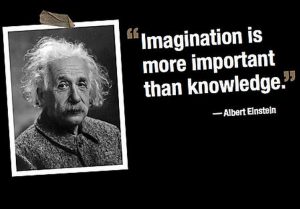Daydreaming rejuvenates brain
Many researchers have found that wandering mind can boost brainpower. Daydreaming is very good and actually boosts the brain, it is good for the health of brain. While we daydream, the brain is actually working more effectively. Daydreaming has a positive effect on our task performance. We all know that Albert Einstein was a daydreamer as a schoolboy, so much so that his headmaster informed young Albert’s father, “It doesn’t matter what field he goes into, he’ll never make a success of anything.” While daydreaming, at times a brilliant thought or a sparkling idea appears in our minds. Often, even before we start processing it – in flash of seconds it vanishes. Some other urgent thoughts replace this brilliance. It happens to poets, authors, painters, composers, to all creative minds. It is very difficult to catch or detect that elusive idea or thought again because of its abstruse nature. But, all good things happens in our imagining.
A study from the University of California, Santa Barbara, showed that people who continued to a difficult task after taking a break, and during the break if they just took a small nap or doing some easy task their performance got boosted by 40 per cent. Many scientific thinkers claim to have had their moments of inspiration while engaged in daydreaming, they experienced pensiveness during that time.
When we are relaxed, involved in a light-task, may be chatting with a friends, listening to music, or while involved in a hobby we get all those classical creative ideas. Daydreaming gives our mind that break which refreshes our mind. Mind wandering enhance creativity. I think it’s not less than a luxury.
When Albert Einstein used to wander off in his daydreams, what he termed as “thought experiments” were his foundation for his physics breakthroughs. He didn’t have the luxury to work with professors in labs day in and day out. He had a wife and child and required to earn money to run his family……that was also the time he wanted to legitimize his patents in in Switzerland. Einstein changed science in his free time. In 1905, when he had little spare time, he publishes four papers that changed the breakthrough fundamentals on light. 1) What is light? Explaining light particles (photons), disproving wave theory 2) First proof of atomic particle, even calculating their size 3) E=MC2: direct correlation between matter and energy 4) Theory of Special Relativity: perception of bodies in motion.
We do the best thinking, when our mind strolls. Cognitive scientists say that we all have an inherently distracted mind. The wandering mind is our brain’s default mode. If we are physically in a cinema hall, mentally we are in a shopping mall, if physically we are in office but mentally we may be at a friend’s party. Our mind is a gypsy, it’s a nomad. A 2009 neurological study shows that half of your thoughts are fantasies. Mind keeps wandering to solve an insistent personal problems or unresolved dilemma. Sometimes we are so overwhelmed by the degree of a problem that we dare not consciously think about it. But then, when we are half asleep or bored by some activity, our minds wander toward intimidating mental challenges. And, that state of mind finds solution.
True, sometimes mind wandering impairs focus on a task at hand. Daniel Goleman says the time a distracted brain spends tackling tough challenges makes up for diminished productivity. Mathematicians who excel at cognitive control and disciplined attentiveness, are low on creativity. Among the benefits of mind wandering, Goleman lists generating future scenarios, self-reflection, navigating complex social situations and incubating new ideas. He says the drifting gives your brain a rejuvenating vacation. Isn’t it inspiring?
As G.K. Chesterton – the famous English writer, poet, philosopher, dramatist, journalist, orator, theologian, biographer, and literary and art critic once said that he scripted most of his novels when he lost his head, he got fabulous ideas for his novels and plays when his mind was drifted from his work. In such moments he put two and two together and made four million. When we focus our mind completely on resolving a task, the mind loses its creativity because of the controlling censor, “this is ridiculous”, “that won’t work,” “is this right,” “will that be right” “hey will this work”? etc, etc. When mind wanders, the controlling freak is quiet.
Most of the adults are ADD (attention deficit disorder). A 2011 study showed that we adults with attention deficit disorder show higher levels of original creative thinking and more actual creative achievements. Richard Branson of Virgin Air, said the secret of his outstanding entrepreneurial success was due to his ADD. He kept being distracted by ideas for making money that nobody else would waste time on.
Friends, the fact is our brain has solutions for grave problems such as global warming, terrorism, hunger, crime, security etc. Sadly, we focus on short-term, immediate reckonings. If only we go beyond facts and think globally we might find surprising solutions. Let us all daydreamers, time wasters, goof uppers, span of attention defectors, wanders, time passers – all of us unite, let’s think out of box, we can do wonders for the planet.















































